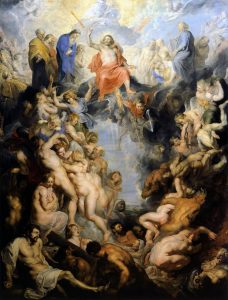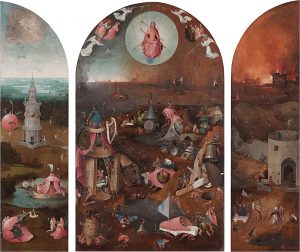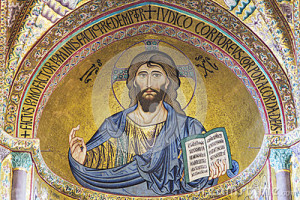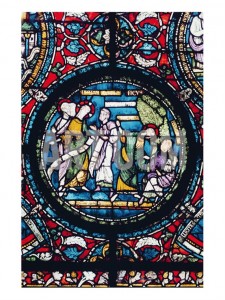Thoughts on Sunday’s Lessons for Dec. 1, 2024

The Great Last Judgement (1617), oil painting, altarpiece, by Peter Paul Rubens (1577-1640). Alte Pinakothek, Munich, Germany. (Click image to enlarge.)
First Reading: Jeremiah 33:14-16
Advent has come, and we begin a new Lectionary year centered on the Gospel according to Luke. The commercial celebration of Christmas may already be in full swing, but the quieter, gentler celebration of Advent comes as a blessing. Advent is a time to prepare, to wait for the celebration of Jesus’s birth – the Incarnation – and for the final coming of Christ’s kingdom in power and glory. Sunday’s readings begin with a prophecy from Jeremiah to Israel in exile. Jerusalem and the temple have been destroyed, and King David’s dynasty has ended after 400 years. But there is hope, Jeremiah assures the people: A new branch – a messiah – will spring up and grow in David’s line, and will restore justice and righteousness in a new Israel.
Psalm: Psalm 25:1-9
Echoing Jeremiah’s promises to Israel in Sunday’s first reading, this passage from Psalm 25 speaks of a people facing the threat of humiliation and defeat. Trusting fully in God for salvation, relying on God’s everlasting compassion and love, the Psalmist asks God to forgive the people’s youthful errors and wrong turns while teaching them the right path. The Psalmist asks God to remember us not for our sins but with all God’s compassion and steadfast love – “chesed” in the original Hebrew – an emotion-laden word that may also be translated as “faithfulness,” “kindness,” “mercy” or “grace.”
Second Reading: 1 Thessalonians 3:9-13
This short passage is drawn from the earliest of Paul’s known letters. It was written to a beloved community in Northern Greece, seeking to strengthen their hearts in holiness so as to remain blameless before God when Jesus and his saints return: an outcome that in those early days was still expected to happen at any time. Writing from far away, Paul calls God’s blessings on the lives of the Thessalonians, expressing hope that he may soon be reunited with them. In the meantime, he prays that the people of this community will love one another and everyone, just as he loves them.
Gospel: Luke 21:25-36
Jesus is teaching the apostles after they have left the Temple, not long before they gather for the Last Supper and his passion begins. In alarming apocalyptic language reminiscent of the Gospel from Mark that we heard the Sunday before last, Jesus warns of the destruction of the Temple and of hard times to come. There will be frightening signs in the earth and heavens and the seas; false prophets speaking in Jesus’s name; nations rising against nations, famines, and wars and rumors of wars. But these signs will reveal, Jesus tells them, that the world’s redemption is drawing near. So don’t be alarmed, he assures them: This is but the beginning of the birth pangs, the Kingdom of God drawing near.




